In the mid 1700s, newlyweds John and Elizabeth were living in an obscure Cornish village. Within a century, their descendants would populate the entire region, as well as the new colony of Prince Edward Island, and ensure the Metherall name a place in history. As their farm and family grew, they were unknowingly setting the stage for a religious and cultural revolution which spread across Canada and the United States. Until now, this story has gone completely untold. Come with me on a genealogical study of a seemingly unimportant farming family, using newly-uncovered documents to unlock a mystery that has stumped historians for generations. We will find how the Metheralls directly influenced the course of human events, as well as how their blood came to flow in my veins.
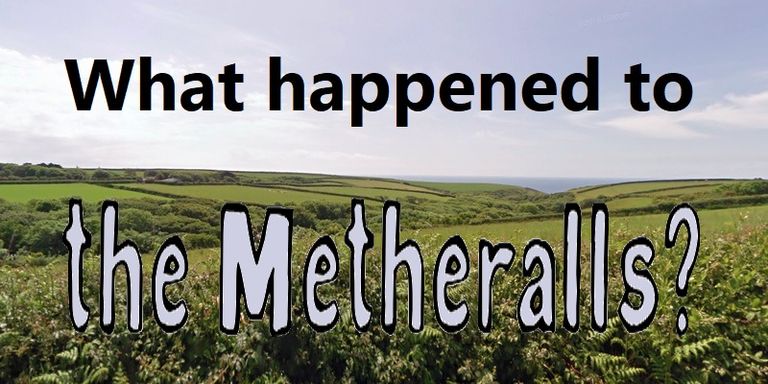
Morwenstow, Cornwall, England
(The above landscape is Morwenstow from Google Maps, much as it looked 300 years ago.)
Let's peer back through time, with the help of the church register in the seaside farming village of Morwenstow, which recorded in March 1741 that John Metherall married Elizabeth Durant.
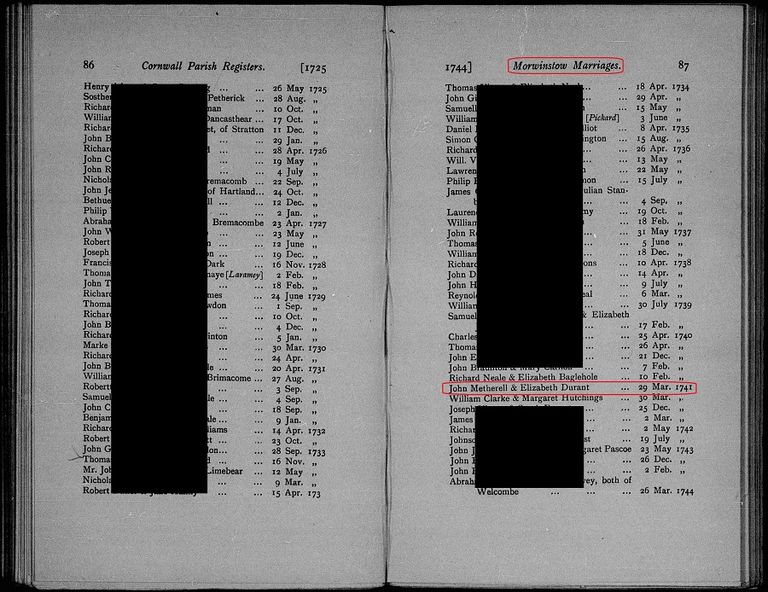
The Metherall name (also "Metherel" and other spellings) was already common around Cornwall during that period, but a glance through available documents doesn't turn up any close family in the parish of Morwenstow (aka Moorwinstow). From the scant information recorded, we know the couple are not listed as "of" some other location, so we know they were not foreigners - John probably had a job or apprenticeship there.
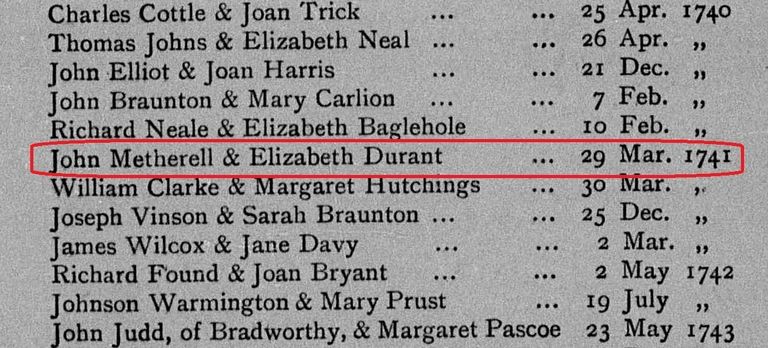
In August, they had their first child baptized, a son named Thomas. Morwenstow had another Metherall, this time native-born.
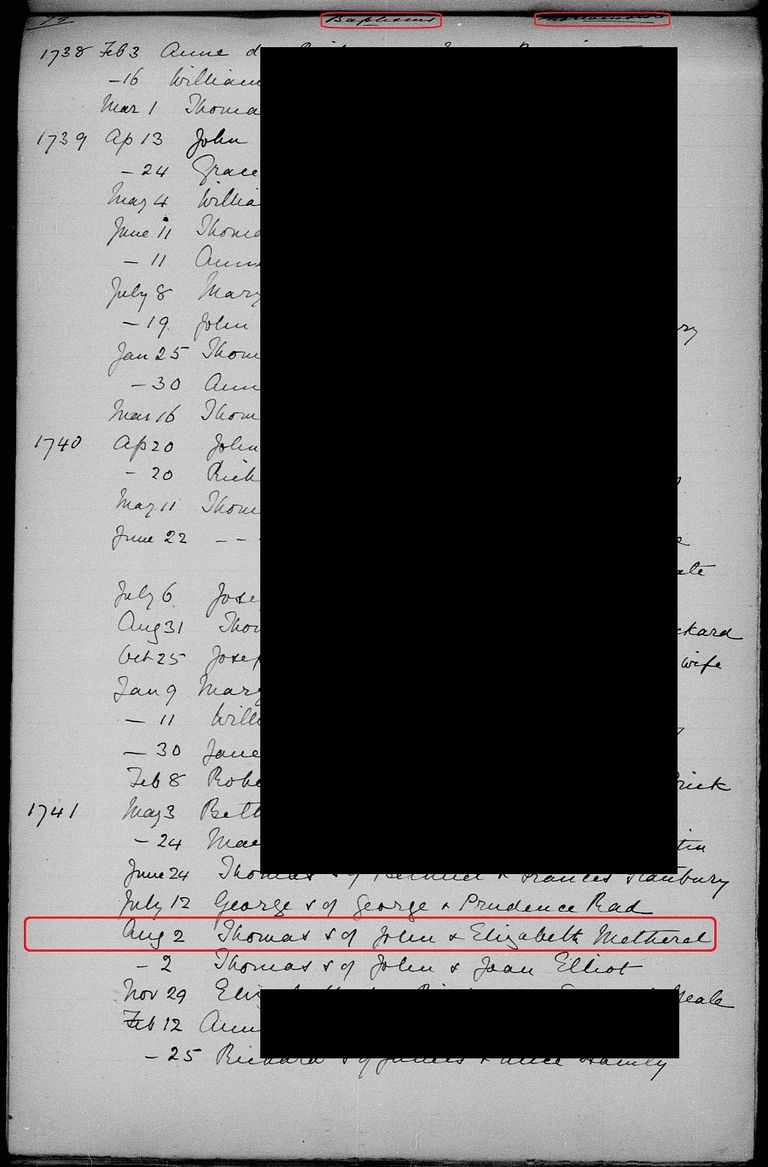
Under "Poor Law", English villages had to take care of their destitute and disabled, so each person was assigned to a parish (church locality). If you became unable to work, your parish supported you. Being born somewhere, of legally-settled parents, came with certain rights and responsibilities.
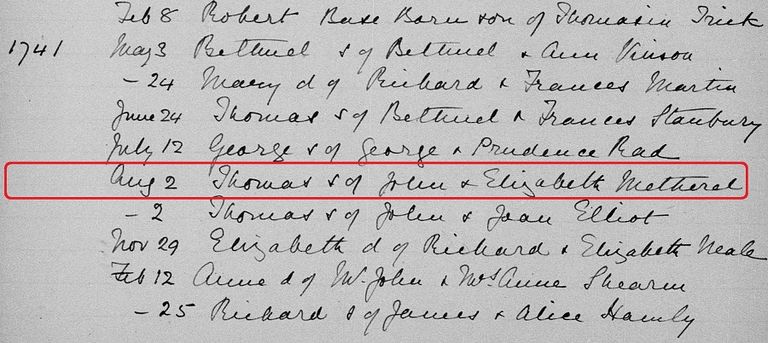
I scoured decades of Morwenstow records, but John and Elizabeth did not baptize any more children there. For reasons unknown, the other Metherall children were baptised in the nearby town of Kilkhampton, a one hour walk along the coast to the South.
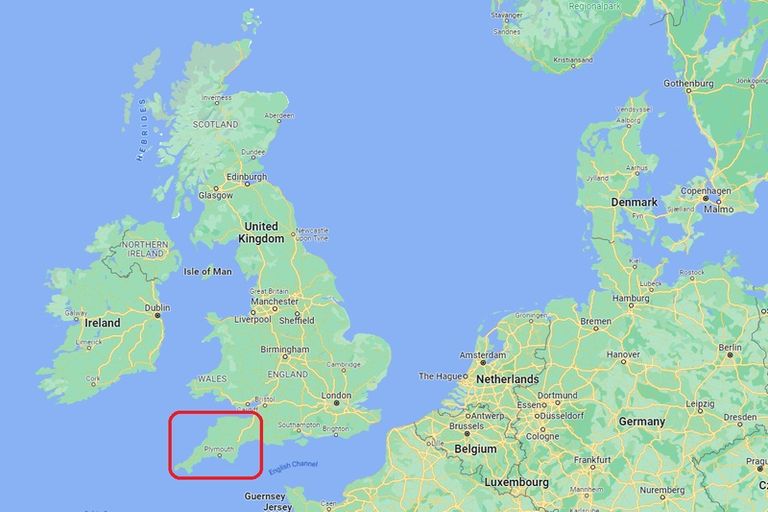
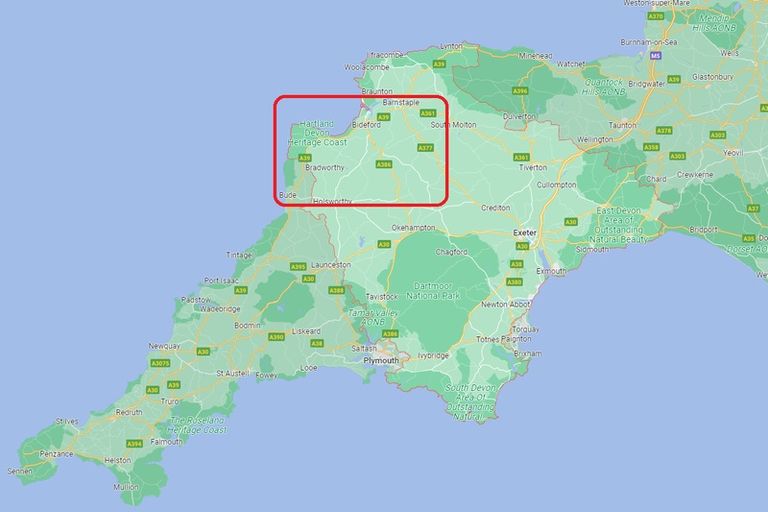
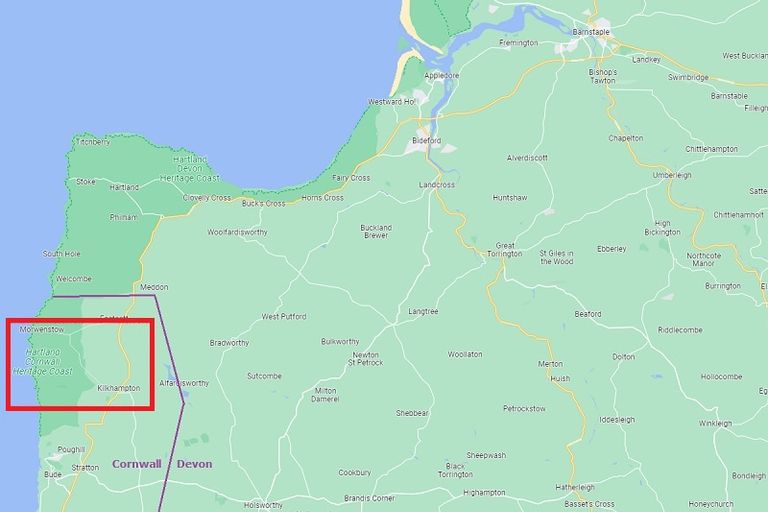
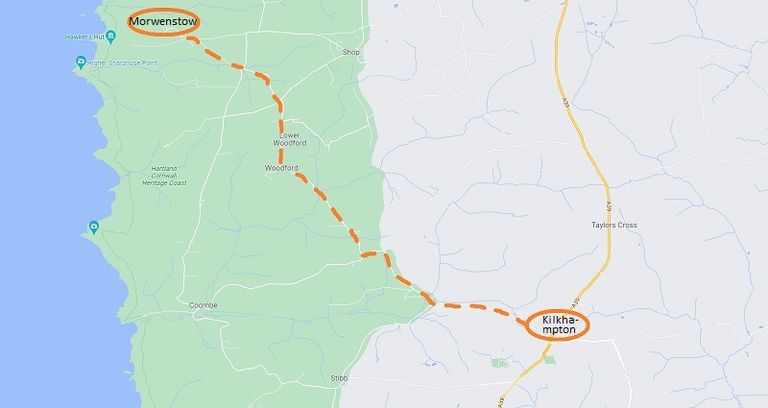
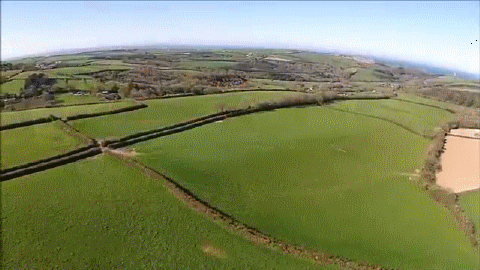
Their next baby was a daughter, christened in Kilkhampton during the first week of 1744.
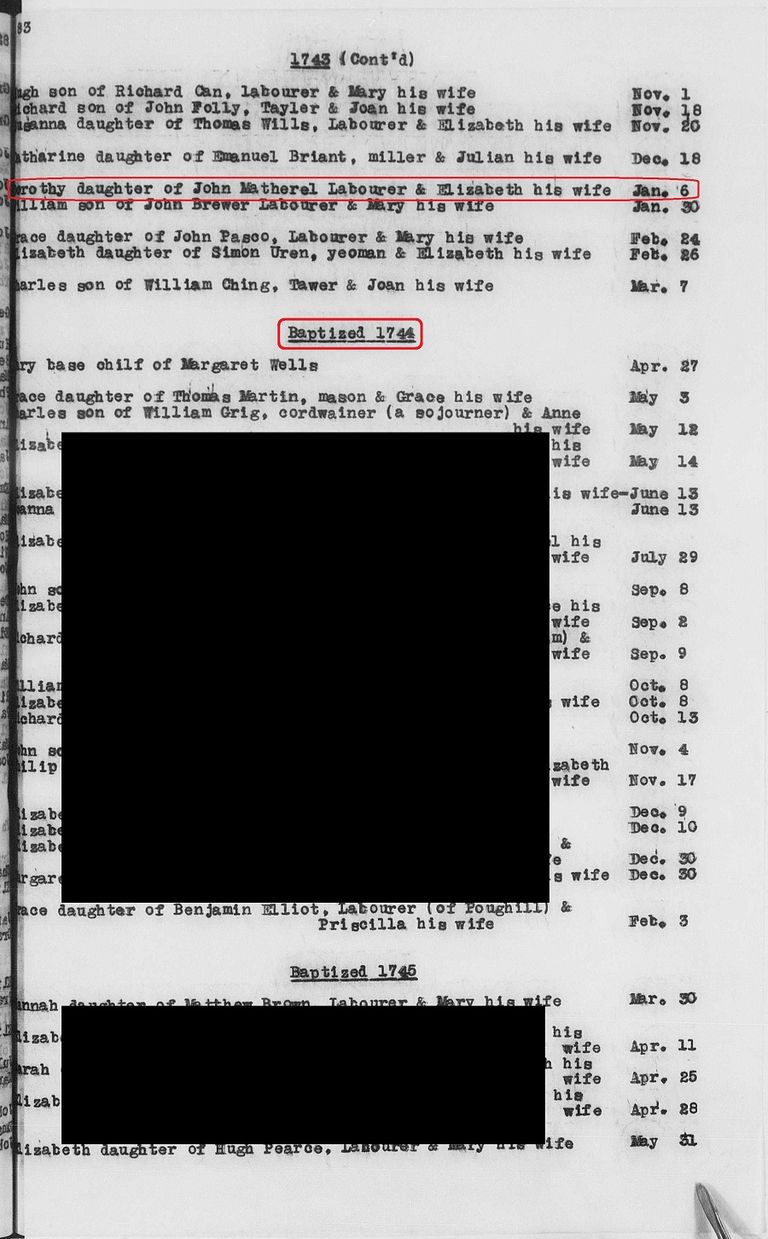
John was listed as a labourer - one who does physical work to put food on the table. He was probably employed as a farmhand.

Children born in Kilkhampton would have settlement rights there. And they kept on coming!
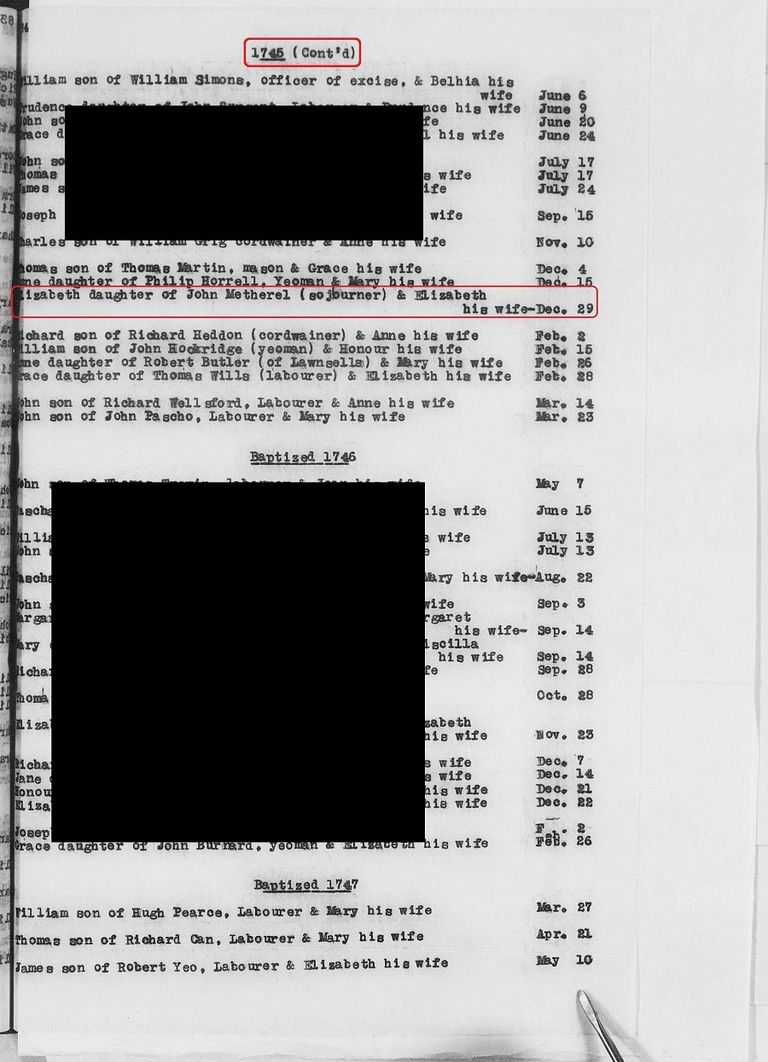
Baby Elizabeth was baptized at the end of 1745.
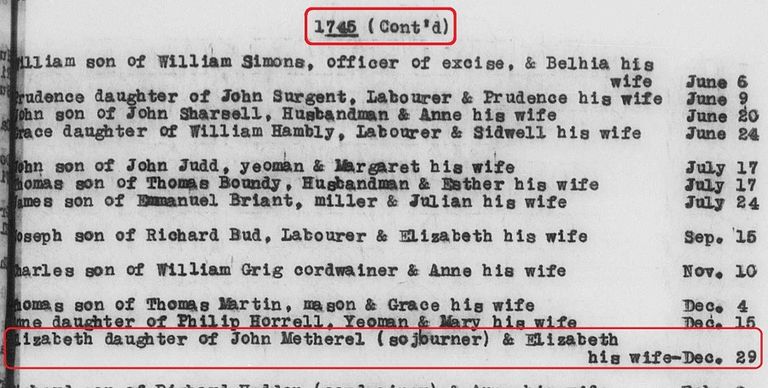
At that point, John was considered a sojourner, meaning he was trying to become settled in Kilkhampton. Perhaps he was renting land there, another way to qualify for parish settlement. He was still considered a sojourner in the fall of 1747, when Elizabeth gave birth to a boy they named John.
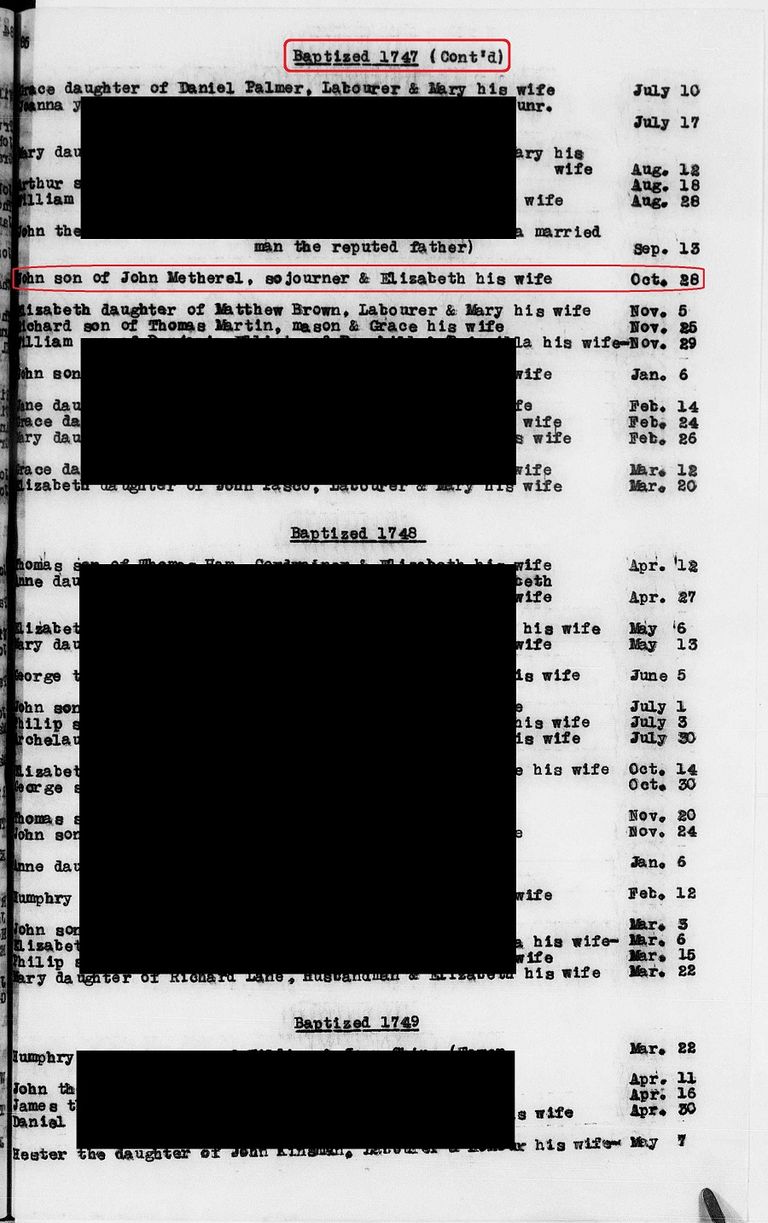
It appears baby Elizabeth died at about this point (aged 1 or 2), so including baby John, the couple then had 3 children in the house.

A couple years later, they baptized their next daughter Elizabeth. Losing babies (often to infectious disease) was very commonplace, as was reusing the names of those babies.
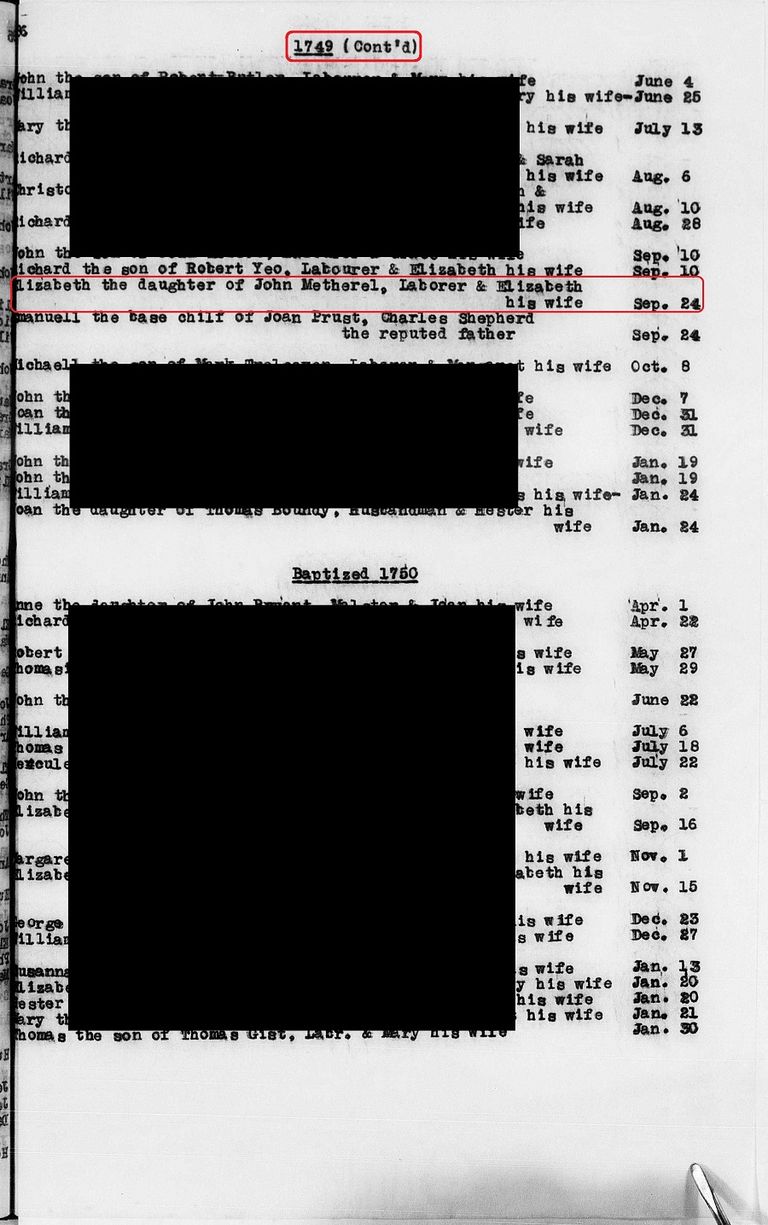
John and his wife now had 2 babies in the house, and 2 older children capable of helping out, but they were only half done their family!

Along with Mary, Elizabeth was the most popular girl name of the time.
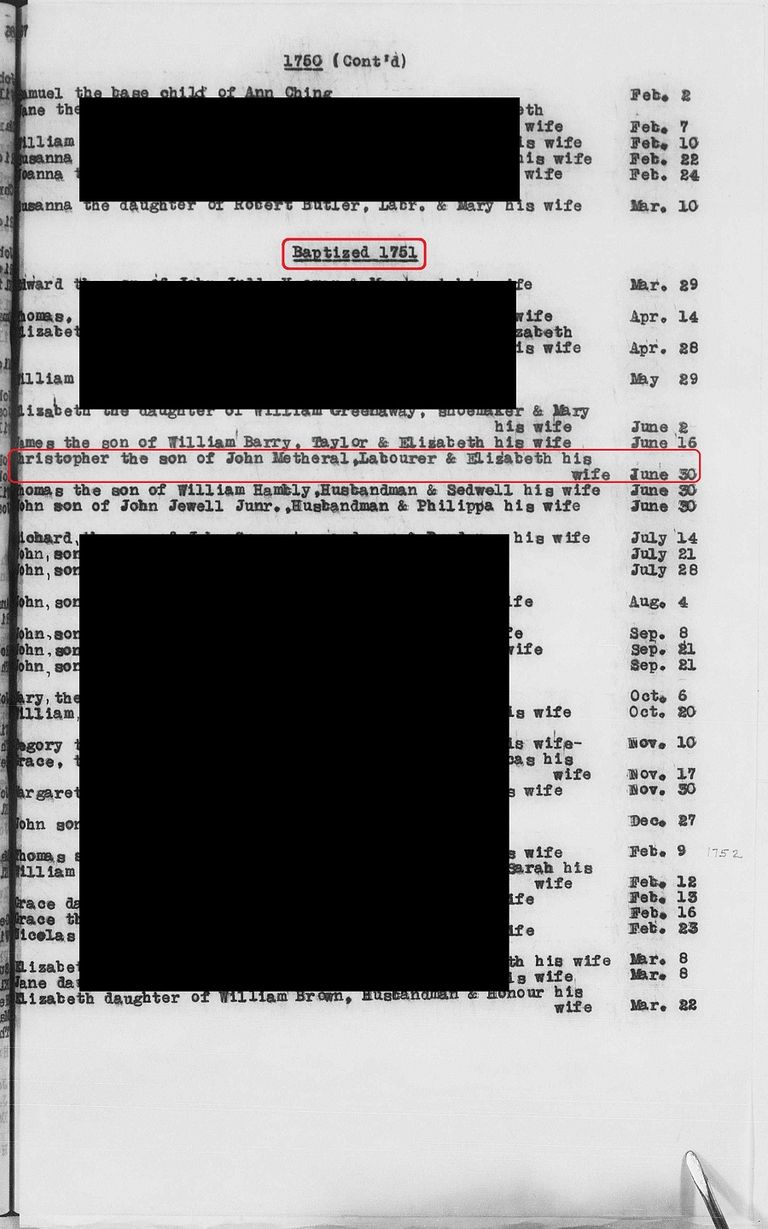
In the summer of 1751, Christopher was baptised.

Father John was again listed as a labourer. He may have been working on his own farm by that point.
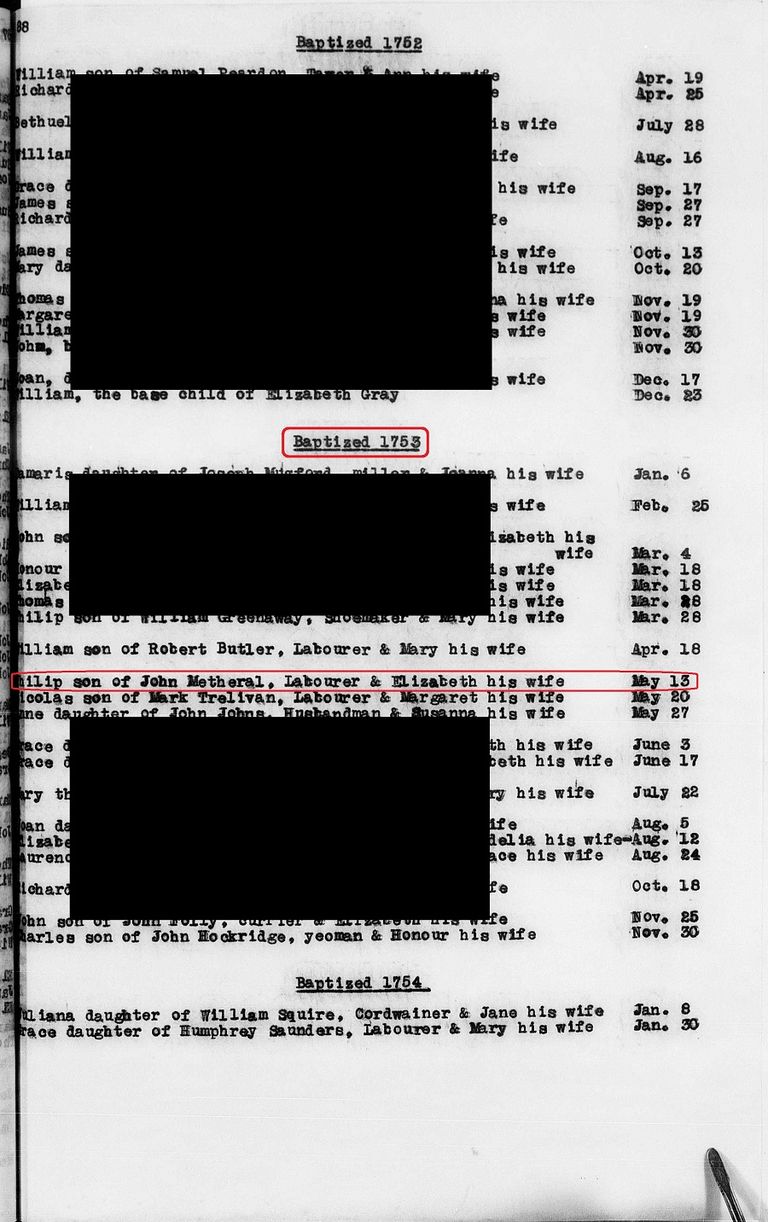
Philip came along in the spring of 1753.

The role of government in everyday life was minor, and there were no birth certificates in those days. The only record of a person's birth was their baptism. Most babies were baptised within days of birth. In 1753, May 13 fell on a Sunday. Most commoners were Anglican ("Church of England") by default, and it was another generation before John Wesley's Methodist teachings would bring fresh doctrine to the area.
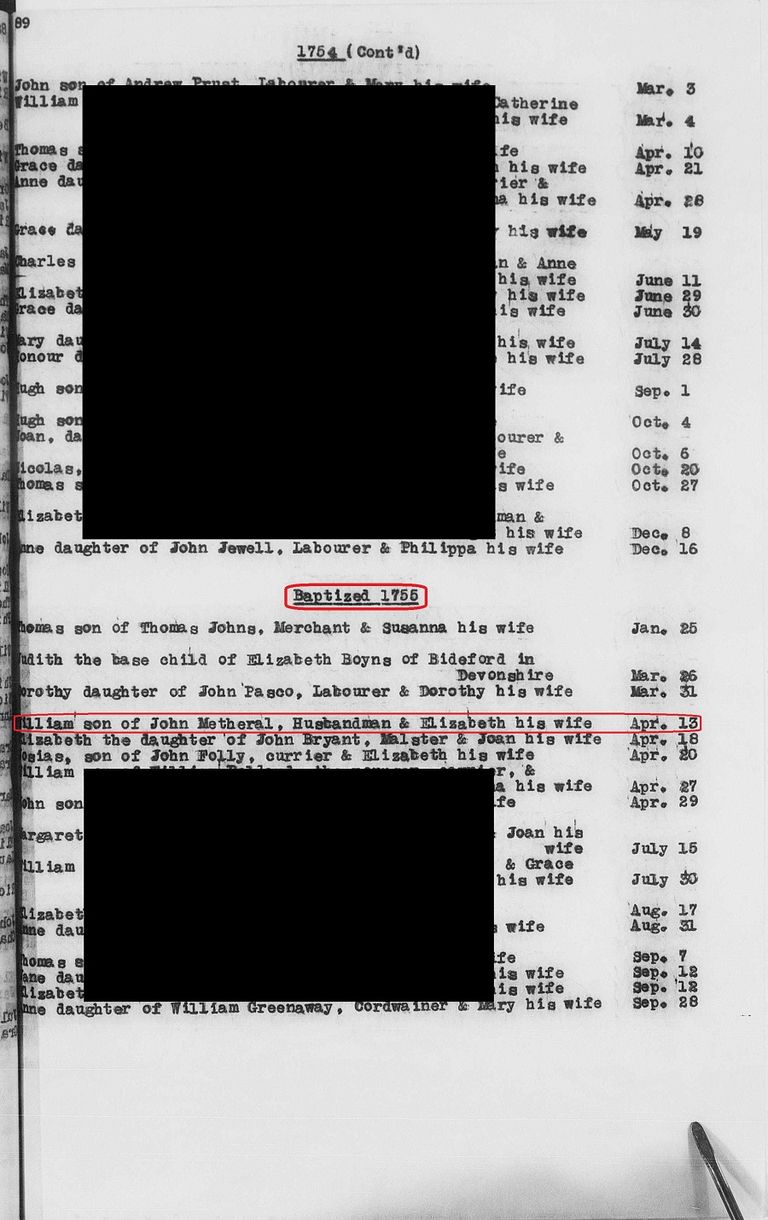
In 1755, the Metheralls were blessed with another boy, who they called William.

John's title at this point had been upgraded to husbandman, a farm owner. (Husbandmen were below yeomen, wealthy farmers who owned large amounts of land. Yeoman were below gentry and nobility.)
And at the end of the 1750s, Elizabeth had what appears to be her last child, who the couple named James.
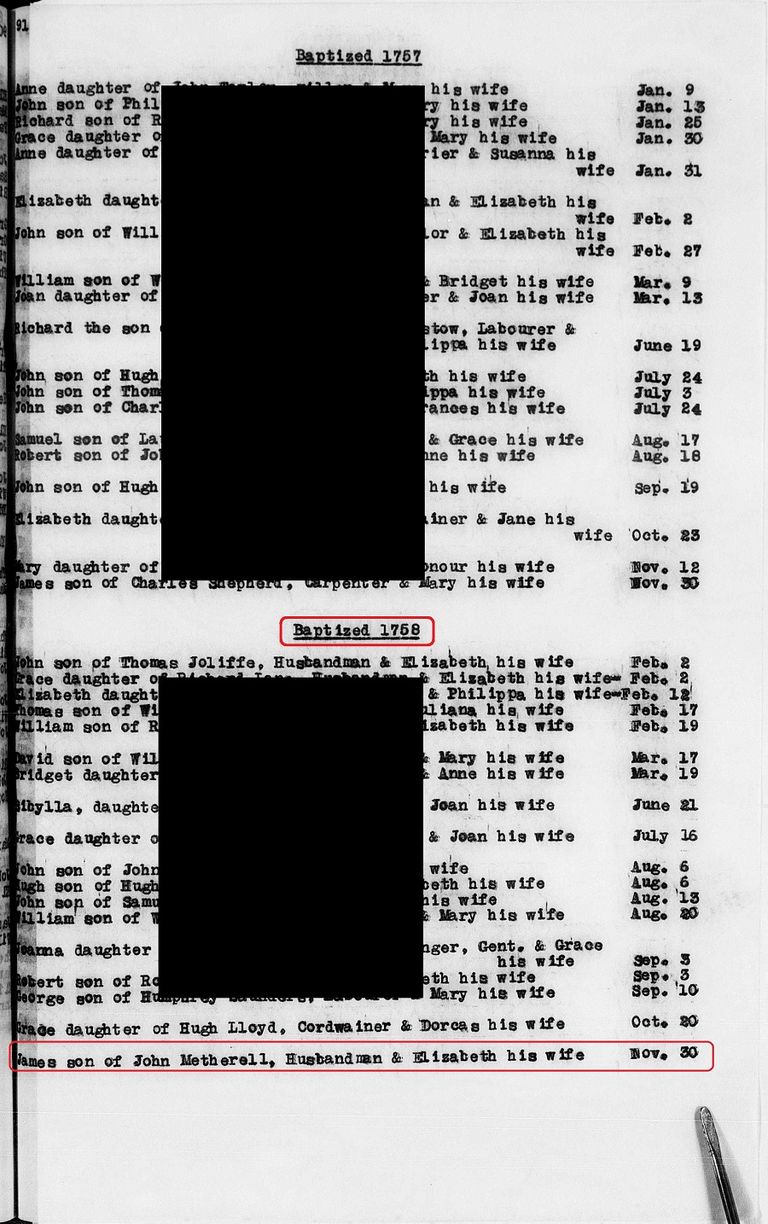
After almost 2 decades of grinding his way up, husbandman Metherall was the owner of a growing farm. He and his wife had babies, children, and teenagers living at the homestead.

The Metherall family
I would love to be able to provide more personal details. But it was a time before photographs, and common people couldn't write, so we have little left of them, other than what remains on old parchment when they were baptised, married, and buried.
John Metherall and Elizabeth Durant married in Morwenstow, Cornwall in March 1741. Children:
Thomas baptized August 1741 in Morwenstow, Cornwall
Dorothy baptized 1744 in Kilkhampton, Cornwall
John baptized 1747 in Kilkhampton, Cornwall
Elizabeth baptized 1749 in Kilkhampton, Cornwall
Christopher baptized 1751 in Kilkhampton, Cornwall
Philip baptized 1753 in Kilkhampton, Cornwall
William baptized 1755 in Kilkhampton, Cornwall
James baptized 1758 in Kilkhampton, Cornwall
In those days, Cornish people were living off the land in small communities. Their lives came and went, at the mercy of the seasons, in the times before cities and centralization. Paganism, the worship of Nature and natural processes, continued to be observed by some whose ancestors had done so for thousands of years, sometimes alongside newer Christian practices. Farms generally consisted of fields of grains and vegetables. Metal coinage was scarce, and most people either produced what they needed to survive, or bartered for it.
As for these 10 particular people, we have only tantalizing clues about them. Following them in the documentation, it looks like most of the family lived relatively long lives, with few early deaths to disease, despite no access to health care or modern medical knowledge. They were also productive and industrious folk, as evidenced by the family farm steadily growing in size and number of employees. Healthy and successful, the Metheralls were from good stock.
The stage was set for the Metherall family to alter the course of human history, but which of the 8 children would be the spark? The 7 baptized in Kilkhampton all seem to have remained in the area. Some stayed on the family land, while some moved to nearby farming villages, but from what has been discovered thus far, none of these Metherall children broke from tradition. The lone exception? Firstborn Thomas, baptised in Morwenstow, returned there to marry... and changed the world forever.
The Next Generation - Back to Morwenstow
Much like their origins, the ultimate outcome of John and Elizabeth is a mystery. No burial register entries, tombstones, or oral histories have yet been found. Many Kilkhampton documents created during the 1770s and 80s are damaged or missing, so perhaps they died then. That would make sense, because it was then that the 8 children married off.
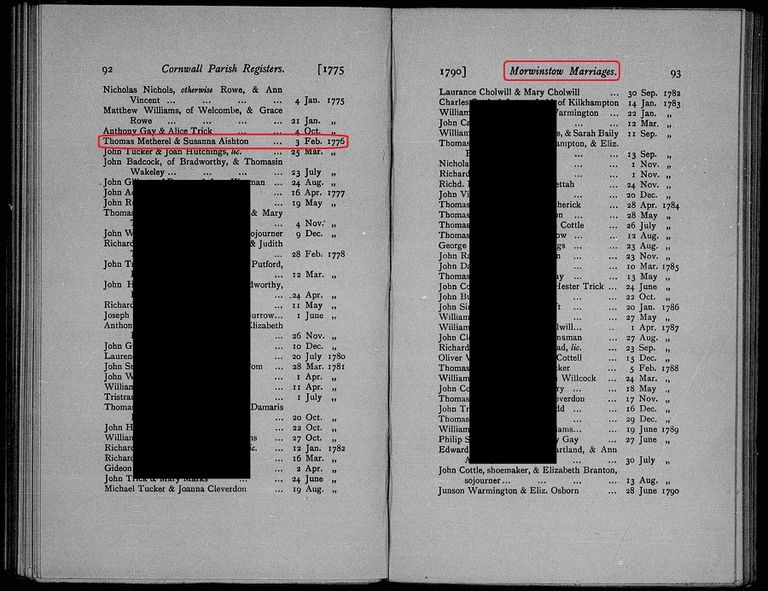
On a winter's day in 1776, Thomas Metherall married Susanna Aishton, in his hometown of Morwenstow where he had settlement rights. Before electricity, before big cities, before industrialization. Overseas, the American Revolutionary War was raging, leading to the creation of the Declaration of Independence from England. In Cornwall, the Metheralls were farming and breeding!

Why not wait until spring? It might have been because a baby was on the way - or already arrived.
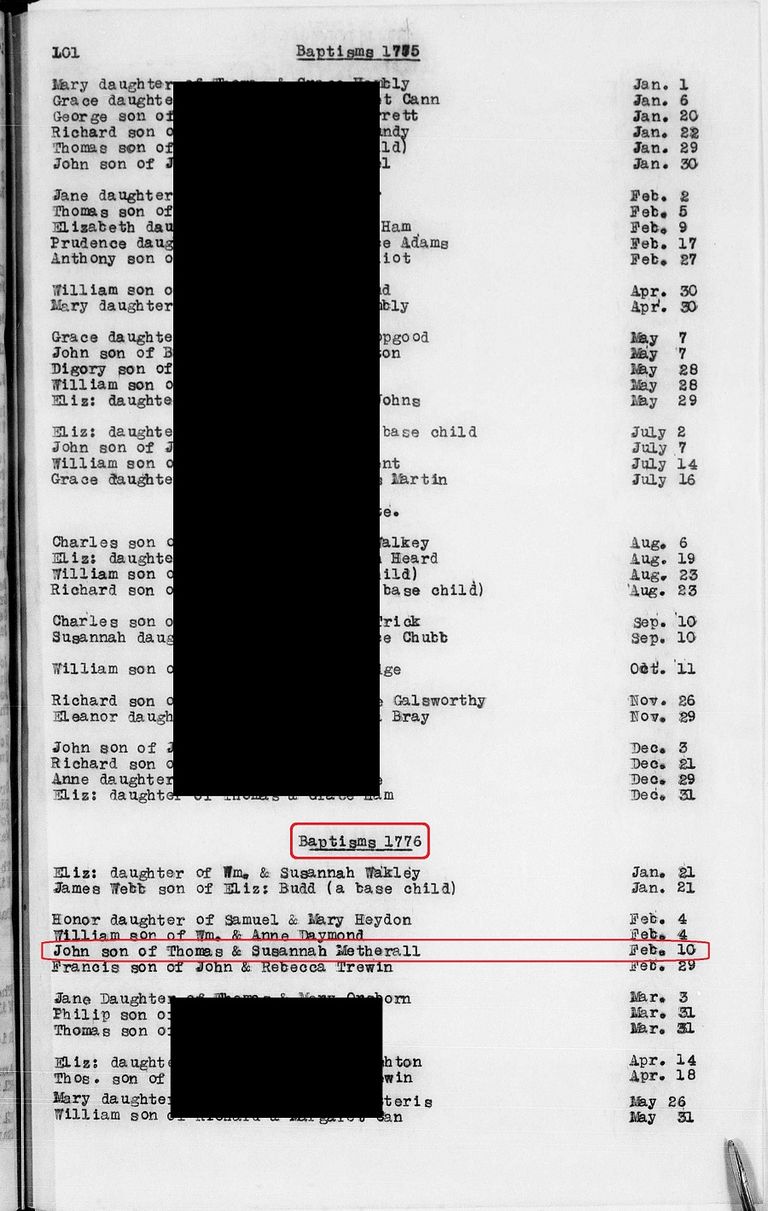
Just a week after their marriage, Thomas and Susanna Metherall baptized their firstborn, naming him John after Thomas' father. Like Thomas himself, little John wasn't baptized where his parents were married, but in the church one village over!

Regarding baby John Metherall's baptism so soon after his parents' marriage, it probably wasn't that big a deal. As long as the father put himself on the baptism record, the baby received his last name, and wasn't considered a "base child". It was not until the Victorian era that it became rare and taboo to have children outside wedlock.
Thomas and Susan then had 7 more consecutive boys, all of whom were baptized right there in Morwenstow:
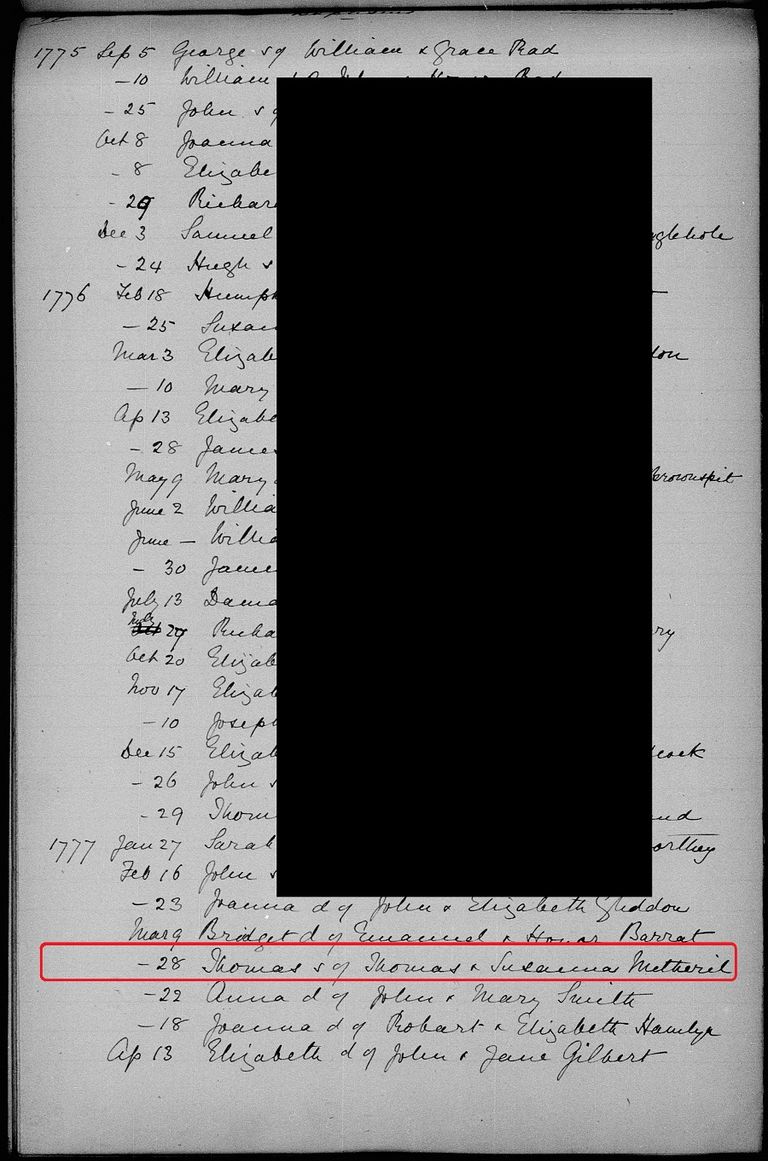
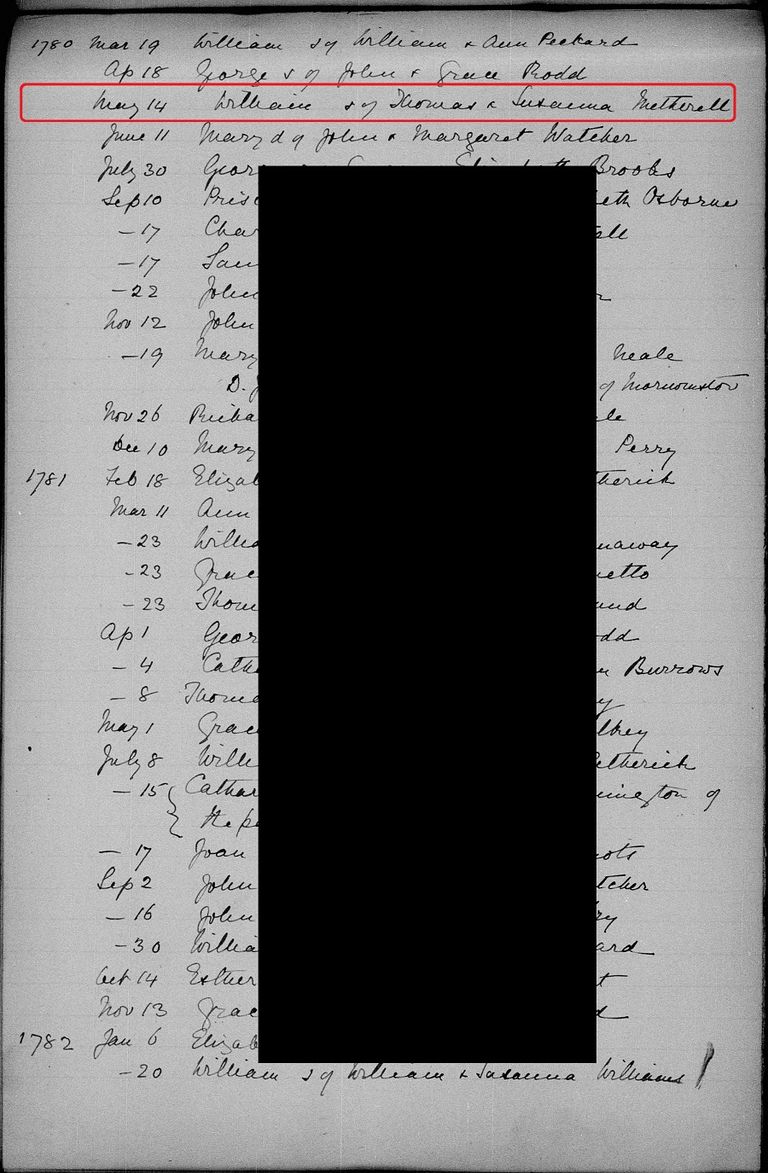
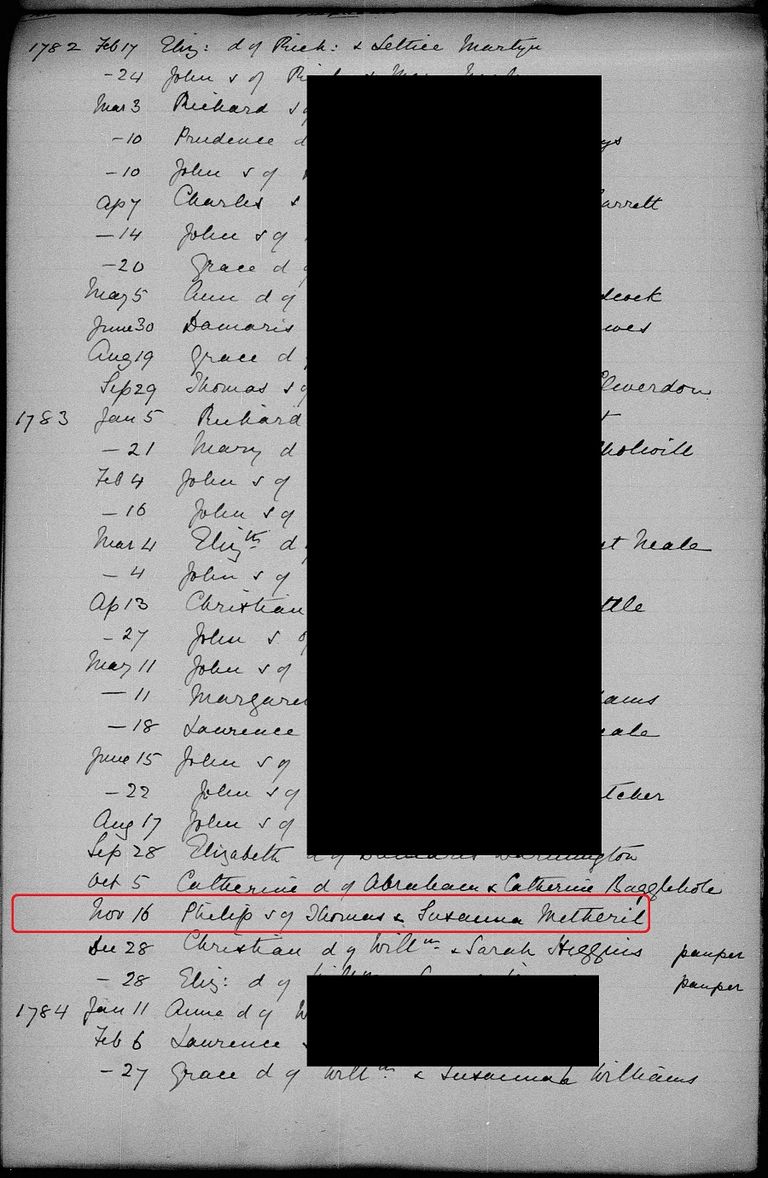
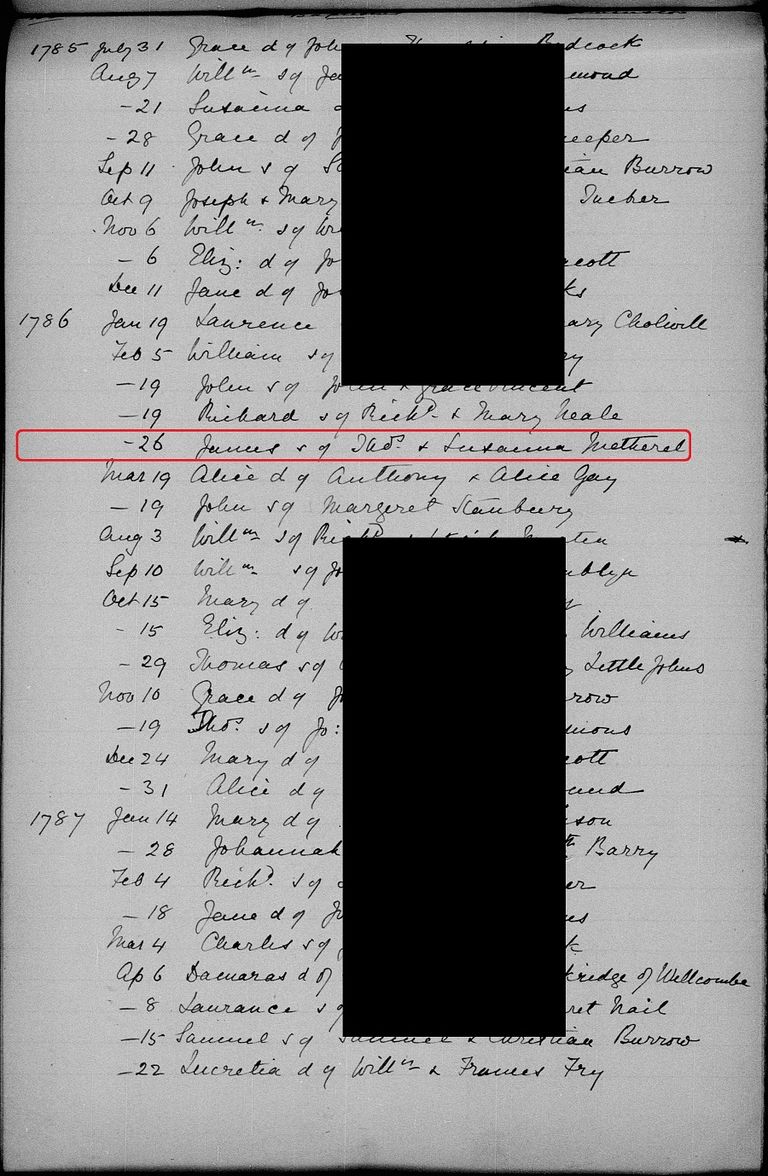
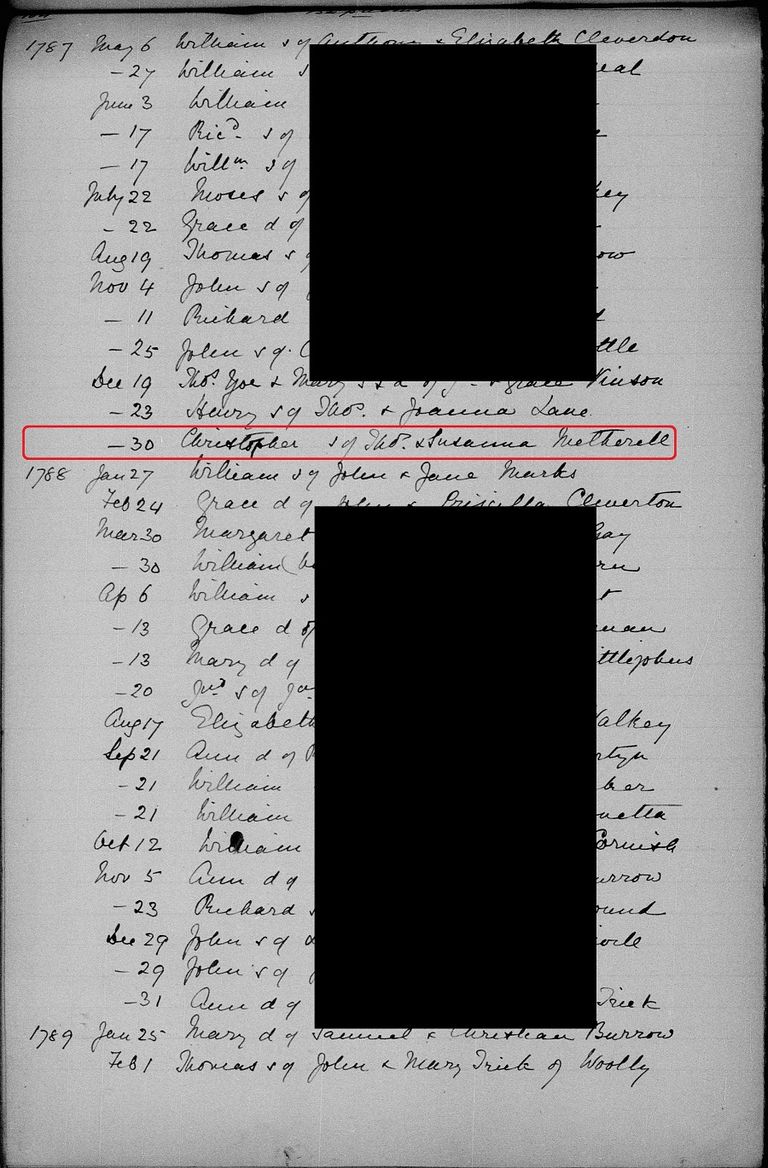
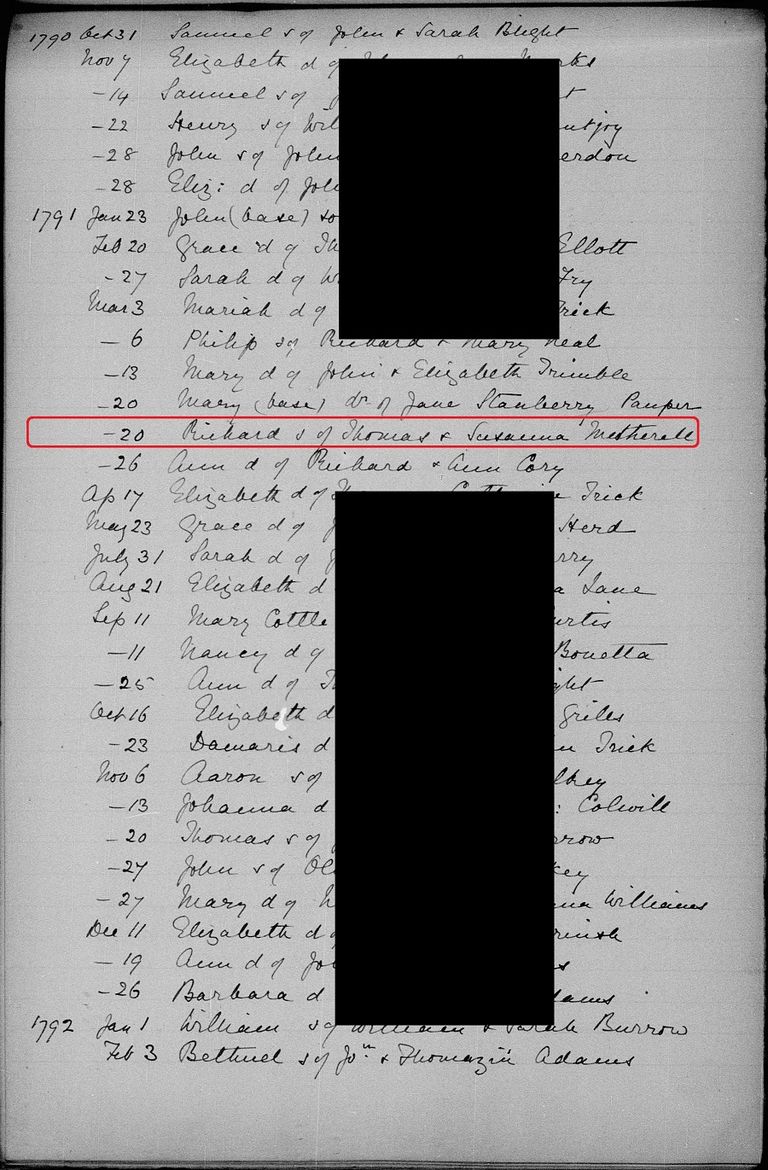
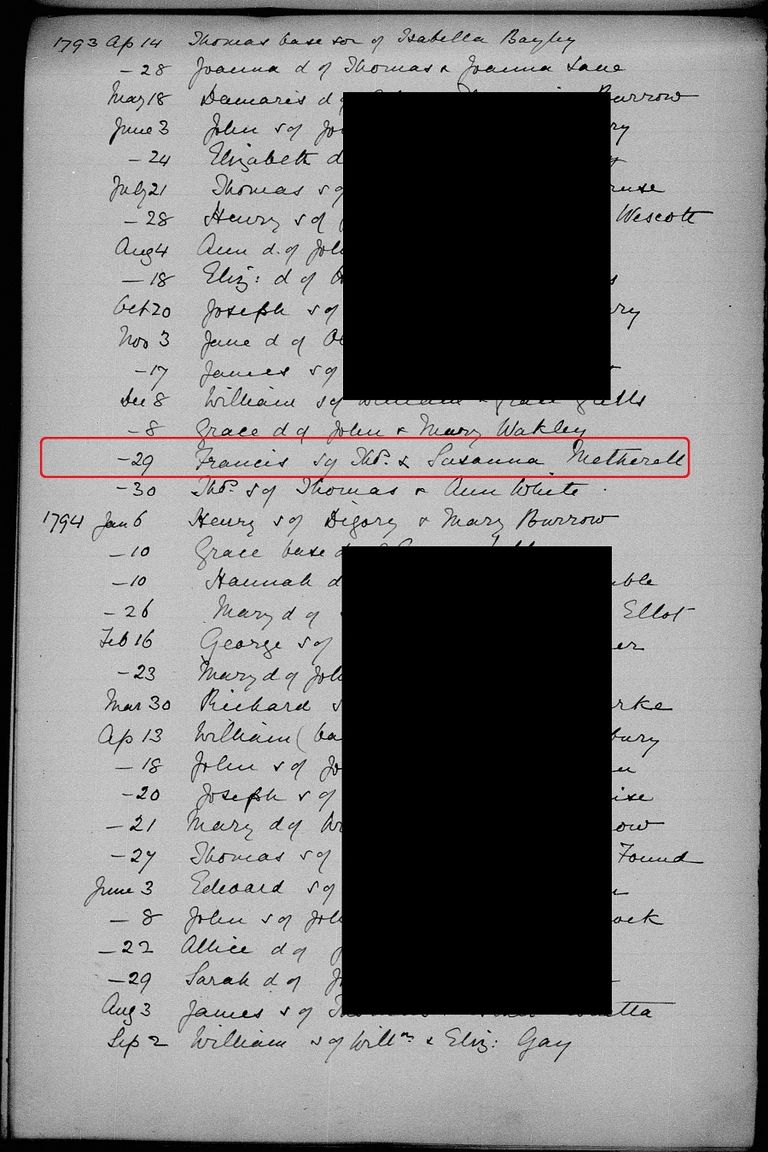
Digitally flipping through the Moorwinstow baptism register is quite an experience, but no further Metherall children can be found baptized there (nor in Kilkhampton) after 1793.



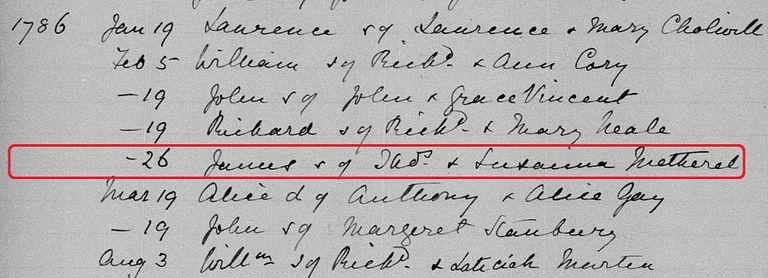



Thomas would then have been 50 years old - past his peak as a farmer. He and Susanna had produced EIGHT Metherall sons, who were about to be unleashed upon the changing world of the 1800s.
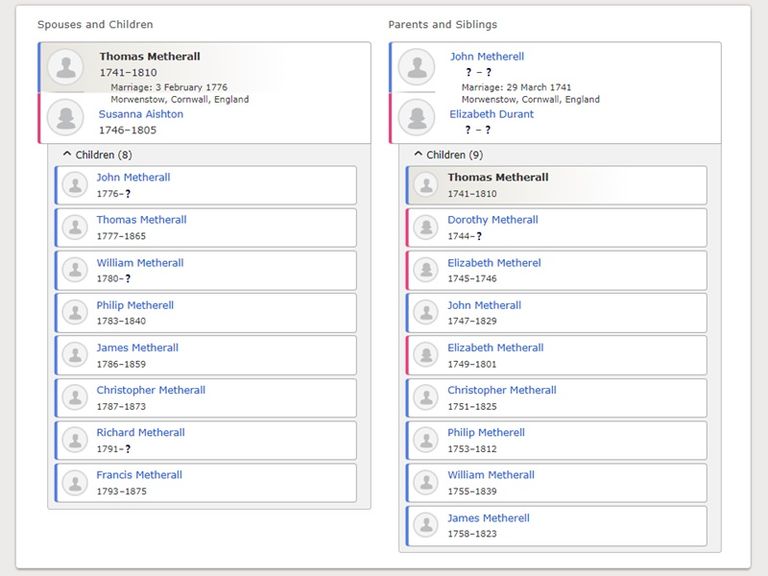
But in 1805, the register in Morwenstow records the burial of Susanna Metherall.
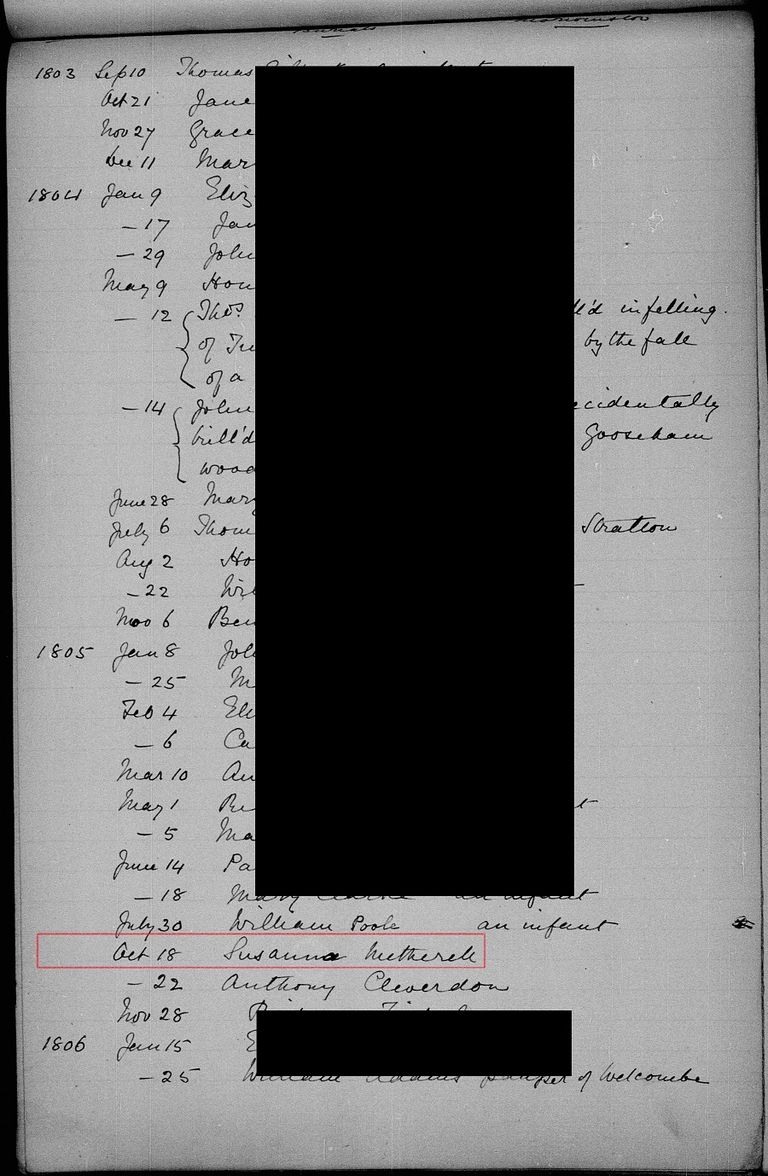
And with a page between them, the burial of Thomas is found in 1810.
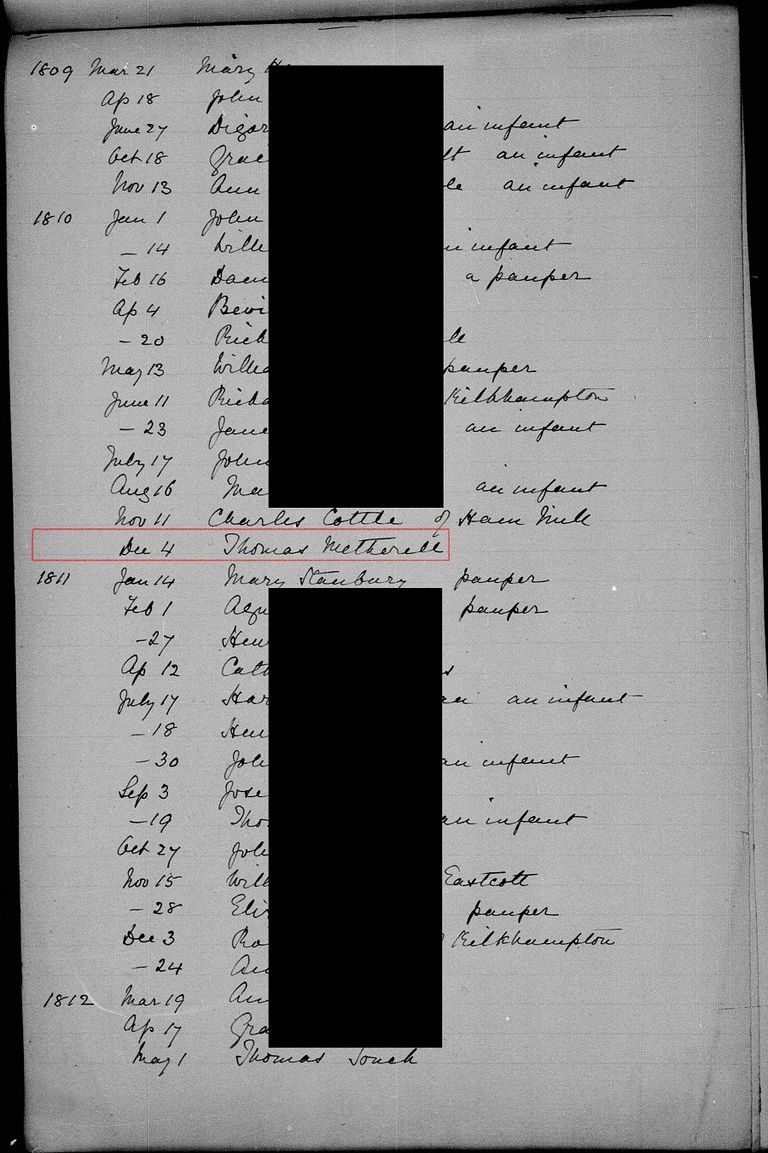
Father and mother Metherall were gone, leaving 8 sons ranging in age from 19 to 34.

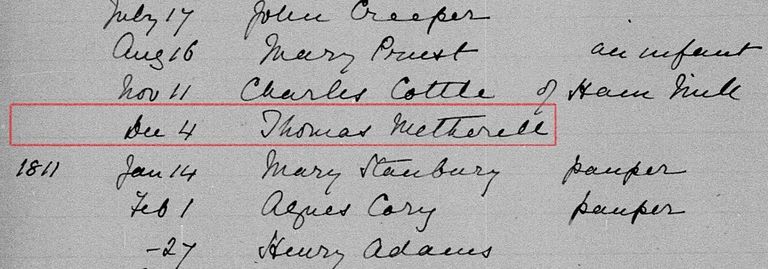
The Metherall lads married and spread out at that time. Little is known of firstborn John, or of William, but some details about the lives of the others have now been uncovered. Here's a different look at Christopher's baptism info:
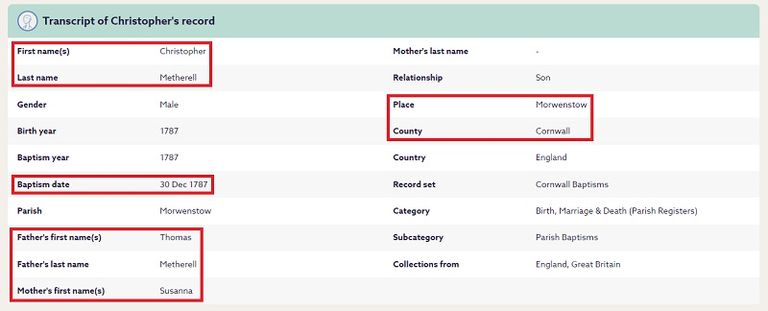
The 1851 census found him in nearby Stibb, farming 79 acres with 4 labourers employed. In 1861, he was in the Cornish town of Whitstone, farming 120 acres:
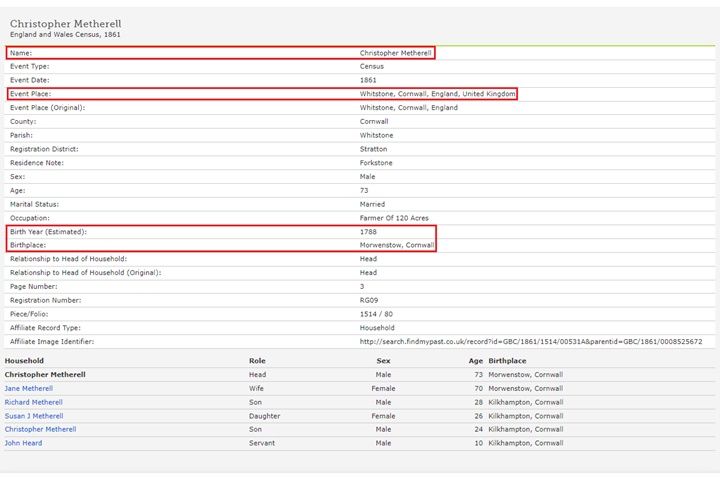
And at the age of 84 years old, he died at his farm, and was buried at the local cemetery:
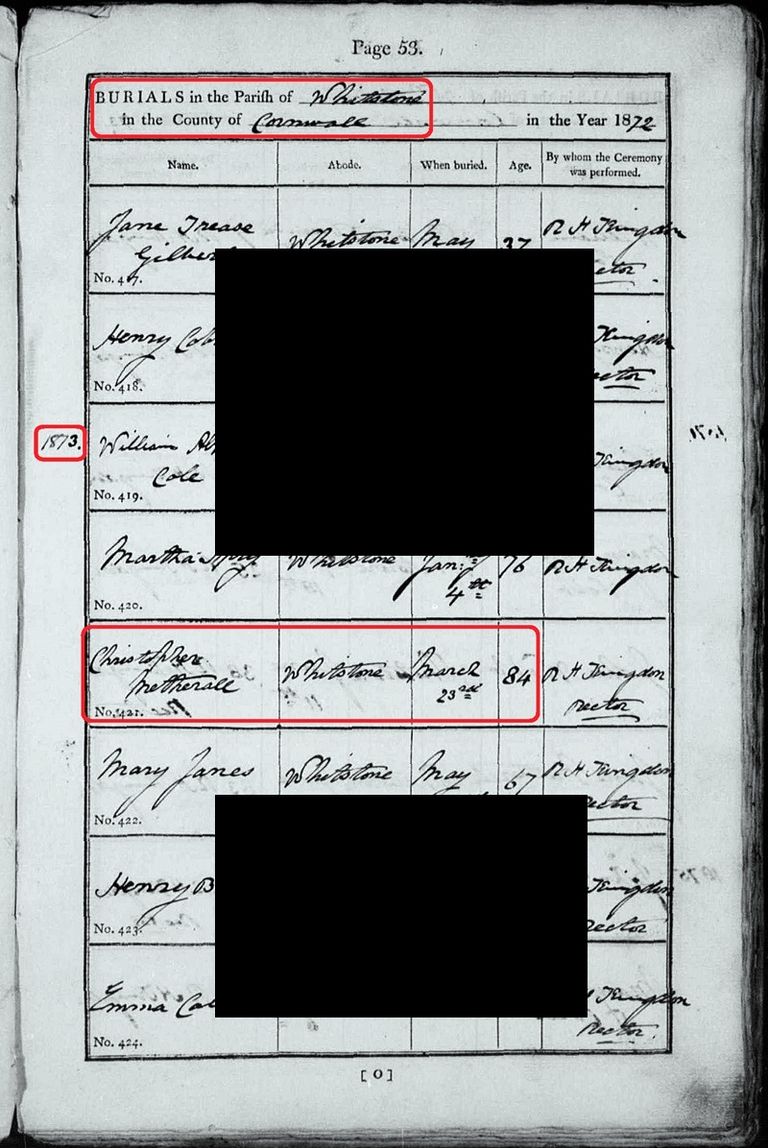
We see from this 1861 census data that the Metherall families continued to divide their children's baptisms up between Morwenstow and Kilkhampton:
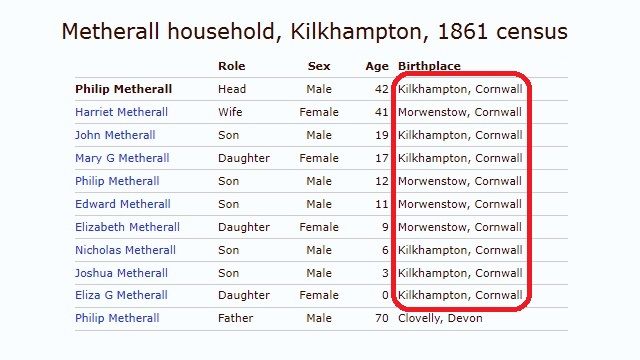
But our attention now focuses on the Metherall descendants who left England altogether.
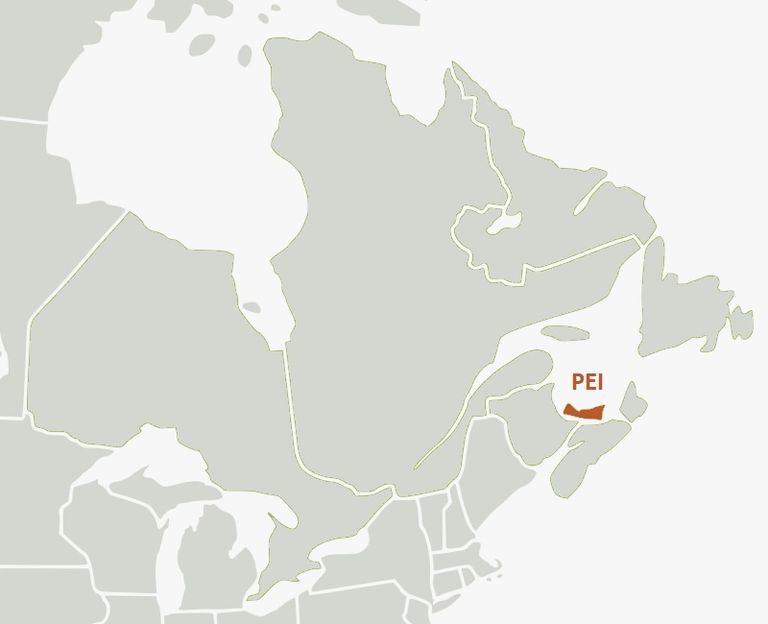
About 1840, second-born Thomas sailed for Prince Edward Island, on North America's Eastern coast, with his wife and 4 children. James' daughter Susan also made her way to PEI about that time, settling with her family on its Western shores. But it was actually the youngest Metherall boy, Francis, who originally led the way to become pioneers in a distant land. And it was he who eventually became known by many as "one of Earth's great men".
Rev. Francis Metherall
"What happened to the Metheralls?" is much the same question as "where did Rev Francis Metherall come from?" The correct answer has eluded historians until now.
Above, I have provided solid evidence that the Francis Metherall in question was baptized in Morwenstow, Cornwall. Not neighboring Devon county, which has been the story passed down after his death nearly 150 years ago. Literally every resource and expert gives "North Devon" as the vague origin of this important historical figure, foiling attempts at identifying his family of origin.
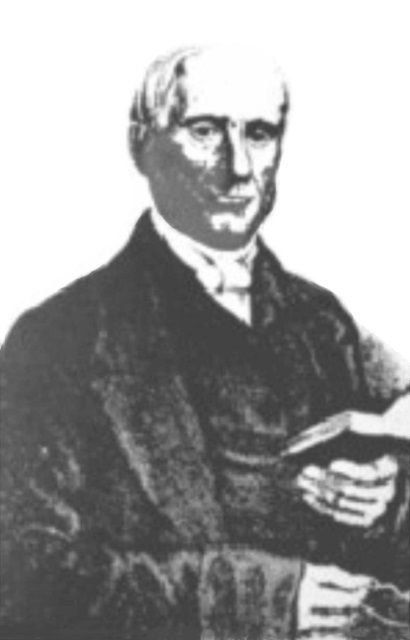
In his early preaching career as a minister for the Bible Christian Church, reverend Metherall helped spread Methodism through the region:
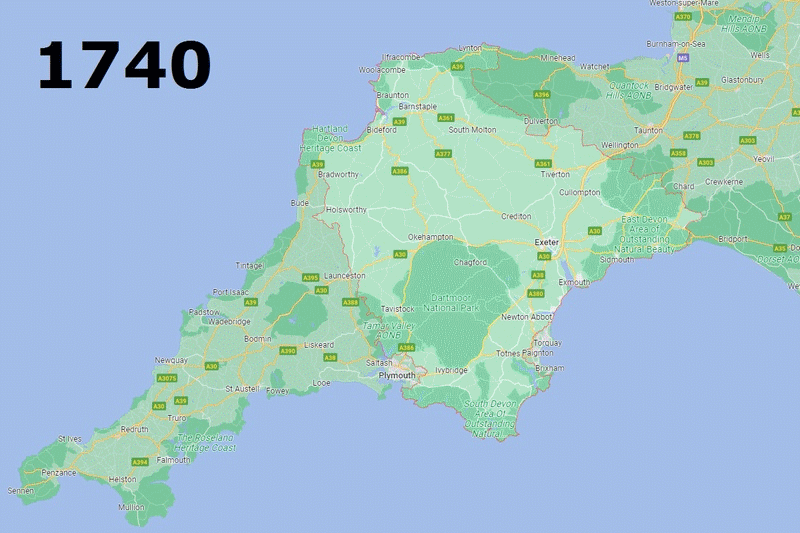
In 1831, following the requests of Bible Christians who had emigrated from Devon and Cornwall to North America, Francis Metherall was offered a mission to Prince Edward Island. He accepted, and would never return to England, instead toiling for decades to advance his cause in the new land. While raising a large family, he becoming instrumental in establishing Methodism in Canada. Today, you would recognize the Methodists as the United Church, one of the world's largest denominations.
The family on Prince Edward Island was joined by more English relatives through the mid-1800s. Francis, well into his 80s, died on the Metherall family farm in 1875. He was buried nearby in a small cemetery for Bible Christian pioneers. Many descendants of Rev. Francis Metherall followed the settler wagons Westward into the new country of Canada.
In researching my own origins recently, I learned I am his great-grandson's great-grandson.
Now, the world knows where he really came from - his specific family of origin in the Cornish villages Moorwinstow and Kilkhampton. Genealogists have been stumped by this for decades, and I'm pleased to have been able to gather, analyze, narrate, and permanently record this information on the public blockchain. I will explain why I think the longtime misunderstanding happened in my next article in this series: "The Life and Legacy of Rev. Francis Metherall".
Daron Rutter
British Columbia, Canada
drutter (at) protonmail (dot) com
July 5 2022
Note: Images of documents
All steps have been taken to avoid copyright violation during this educational investigation. Although they are available for free online, some of the images mentioned may be copyright. None have been included here in their original form. I have created abridged, edited, and clarified versions to give a general feel for the documentation, and to highlight specific information about my family members. Please follow the links provided to view the available images in their entirety.
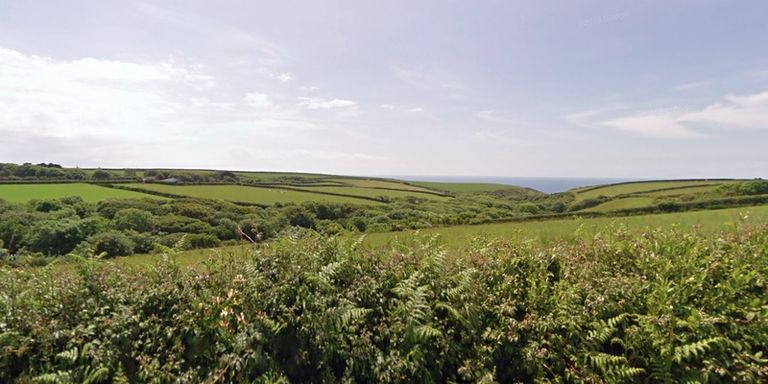
I need not be missed, if another succeed me,
To reap down those fields which in spring I have sown;
He who ploughed and who sowed is not missed by the reaper,
He is only remembered by what he has done.
Horatius Bonar, The Everlasting Memorial
How many hours did you spend digging on this? I find it fascinating!
Sometimes I was thinking of doing something similar for my own family and relatives but I think it's a mammoth job, in this part of the world records weren't that well kept or written at all and I might end up discovering that it wasn't worth at all. Maybe when I'll get older, who knows...
Waiting here for your next article.
Yes, quite a lot of digging! But it became a hobby, and I got enjoyment out of it, so it didn't feel like work.
One thing people who study their family history often say is "I wish I had started sooner". It's hard to describe exactly why that is, but there are many reasons. A big one is that if you wait, some people (who are one of the main sources of information) die before you can talk to them about their information and memories. Can't tell you how many times I've said "damn, if only Grampa was still around, I just have a couple questions for him". I also think it would have made him proud, and maybe even happier about his life and family situation overall, if I had shown my interest in such things while he and Grandma were alive. They were so family-oriented, and it seemed none of their children of grandchildren cared much about that. I didn't take interest until a few years ago. One thing researching your family does is help you feel closer to them, even if they're gone. Or if you're like me, and your living family members won't see or talk to you, it helps you feel connected even if you aren't.
It doesn't have to consume you. We all have 2 biological parents, 4 grandparents, and 8 great-grantparents. You could just start with those 14 people. Find out their full names, places and dates of birth, and maybe a few other things like when/where they got married or relocated.
Start with information you know for sure (having seen your parents' birthdates on documents or ID cards), then including information you're fairly sure about, like info on a family tree or family bible, stories you've heard all your life, and so on. And then consider those old family legends you aren't even sure about.
After collecting all that, go to your living family members, and see what they'll provide you. Ask questions about more than just dates and names, ask them for stories, and how they felt. Let them reminisce, write down as much as you can, or even record it.
And then take what you've got and go online. I can show you where to go for the best sources of records. You'll find your great-grandparents' birth certificates (depending on if that happened during major wars and turmoil), your great-great-grandparents gravestones, and so on. Little bits of information everywhere. It's like a large and complex puzzle. It takes logic and creativity to solve it.
But I will warn you that genealogy is often addictive, even if you don't think it will be! It's not for everybody, I guess, but if you start on it you might end up liking it. The first time I really made a big connection, and figured something out both on paper and in my understanding of my family and myself, it was powerful.
This can be a big problem, this country's(Dracula's Country here 😜) bureaucracy is still based on physical paper and most probably most papers of this kind are not digitized yet or not available for the large public without a special request.
Ohh man, your reply could count as a full article, thank you for taking the time to explain all the steps, and thank you for the encouragement.
No prob!
Sounds like your search would center on family memories, stories, stored documents and family tree, etc. But keep in mind, at some point some of your ancestors probably came from somewhere else. If you can trace back to them, maybe you'll find some digitized records. I have ancestors from Isle of Mann, where the records are terrible, but once they emigrated to Canada or the USA (or even England), suddenly the trail gets warmer and there's more to find.
Also, I'm always available to answer questions on this topic. There's a learning curve, and genealogists are generally keen on helping out newcomers to the discipline.
I have images of the new Tolkien movie flashing through my eyes when I read this. It's a lively account of history from one family's perspective. One of the problems I had with history study is the tendency to focus on those who caused the most trouble. This case focuses on a family and describes parts of their regular lives. This is the part of history that is missing in many textbooks.
I had a weird case of deja vu when I read this post.
Yeah! You were one of the 4 or 5 who saw my previous attempt to share this information before the blockchain crapped out for half a week. I turned that post into an invitation to this one.
Let me know if I can help you with your Irish 'brick wall' sometime! All I'd need is whatever info you have on the people in question (names dates locations) and I'll see what else I can find.
Oh yeh I think it happened just after I upvoted it lol.
I have one of those online family tree things somewhere but can't remember where. My daughter was working on it too. I should ask her coz she found an old photo online. Looked far too ugly to be my great great grannie tho IMO hahaha
Heheh okay. Well, we can get started even without that. If you know any of the names / dates / locations of any of your 4 grandparents, or 8 great-grandparents, I can probably figure it out. If you want to email, my address is at the end of the post. : )
thanx, will do.
Try this, not sure if its private or not - https://www.ancestry.co.uk/family-tree/tree/55030353/family/familyview?cfpid=370161938831
I'm not allowed to view unless I give the site my credit card :(
what a crock. OK will see what else I can send you.
Congratulations, your post has been curated by
Follow #gamestateconnect for more updates on gamestate.
you can also delegate to @gamestateconnect to support curation.
Congratulations, your post has been curated by @techclub
Manually curated by
@chibuzorwisdom
Also, keep in touch with Blurtconnect-ng family on Telegram and Whatsapp
Congratulations!! your post has been curated by @blurt-network
Use #blurt-network for more upvotes
SHARE THIS POST ON FACEBOOK TO EARN BLURT FROM BLURT-NETWORK
Follow Blurt-networkFacebook page Here
You can delegate blurt power to @blurt-network to support curation
Do vote @Blurt.Live as your Witness
Posted from https://blurt.live
Congratulations your post has been curated by @blurt-india .
Make quality posts and use our tag #blurtindia .
Support our couration account by delegating some of your blurt power to blurt-india and make it stronger